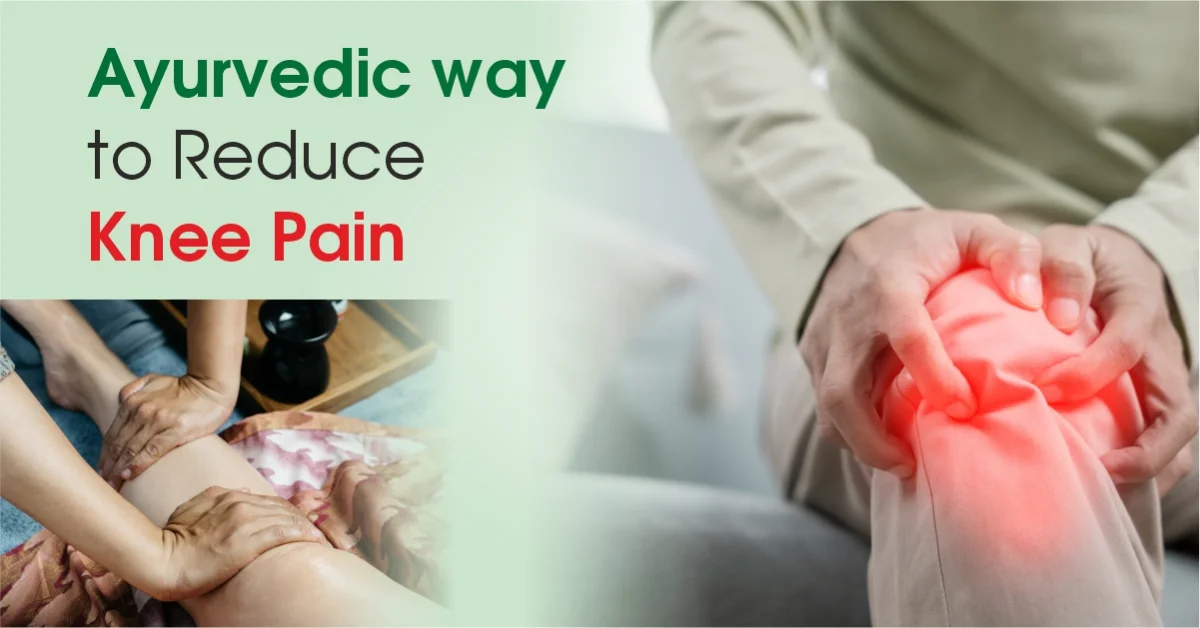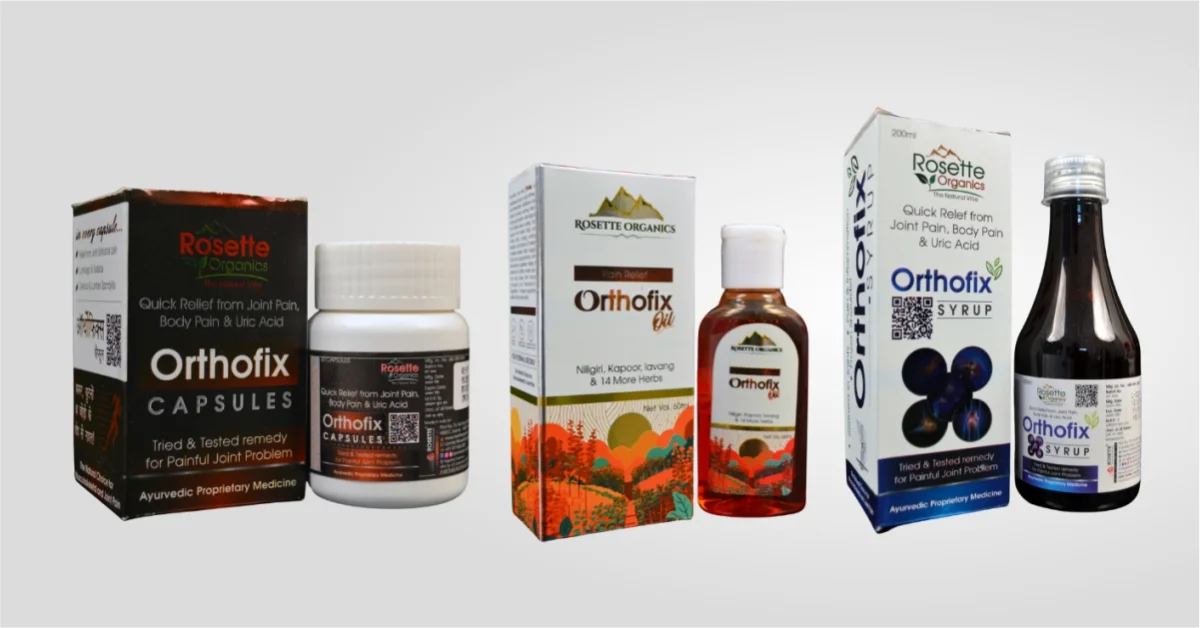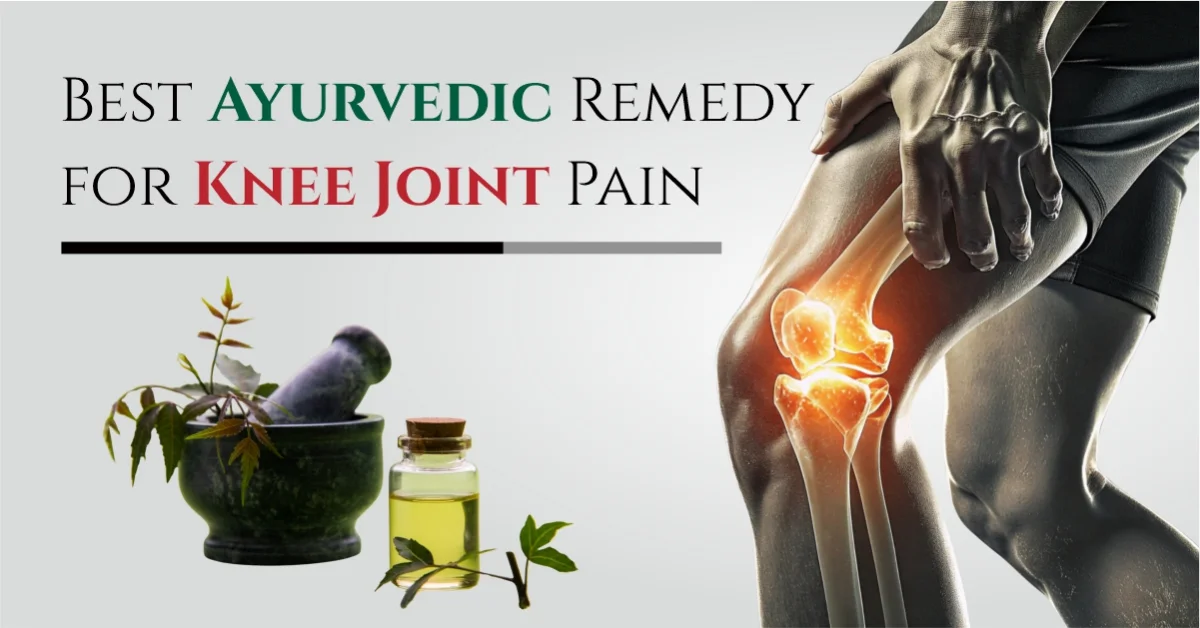Best Ayurvedic Remedy for Knee Joint Pain
Knee pain has quietly become a common part of life for many people—whether it’s young professionals sitting for long hours, adults with a busy routine, or older individuals facing age-related discomfort. Long working hours, less physical movement, poor posture, and stress on the joints have all contributed to this rising concern across different age groups.
Because of this, more people today are looking for relief that feels safe, gentle, and rooted in nature. That is one reason Ayurveda continues to be a trusted approach. It focuses on understanding the body, finding the root cause of pain, and supporting overall balance rather than only controlling symptoms. When someone looks for an ayurvedic remedy for knee joint pain, the goal is not just relief—it is about improving comfort, mobility, and long-term joint health through natural methods.
In this guide, we will explore safe, natural, and holistic solutions inspired by Ayurveda. The aim is to keep the information simple, practical, and helpful for anyone who wants to take care of their knee joints with a balanced and mindful approach.
Understanding Knee Joint Pain
Knee pain is not just a physical issue—it reflects what is happening inside the body and how we care for our daily routine. Ayurveda and modern science look at knee discomfort from two different yet complementary angles, and understanding both makes it easier to manage the problem in a balanced way.
What Ayurveda Says About Joint Pain
According to Ayurveda, most joint-related discomfort begins with an imbalance in Vata dosha. Vata governs movement, flexibility, and the flow of energy in the body. When it becomes disturbed—due to irregular routines, cold exposure, stress, or lack of nourishment—it starts to dry out and stiffen the joints. This can lead to cracking sensations, reduced mobility, and persistent discomfort.
Another key factor is the build-up of Ama, which refers to undigested or toxic waste that settles in the body when digestion or metabolism becomes weak. When Ama accumulates around the joints, it blocks the natural flow of nutrients and lubrication. This often shows up as heaviness, swelling, stiffness, or a dull, lingering pain. Ayurveda focuses on reducing Ama, improving digestion, and restoring balance to support joint comfort from within.
Modern Science Understanding of Knee Pain
From a modern perspective, knee pain usually develops due to wear and tear of cartilage, inflammation, or strain on the surrounding muscles and ligaments. Long hours of sitting, limited movement, excess weight, and poor posture can gradually weaken the knee structure. Over time, this may reduce cushioning in the joints, affect mobility, and increase friction, leading to discomfort.
Lifestyle choices, lack of exercise, repeated stress on the knees, and aging are also major contributors. In many cases, inflammation plays a central role—when the joint tissues become irritated, the knee starts to feel warm, swollen, or painful while walking, climbing stairs, or even resting.
Both views highlight that knee pain is not sudden—it develops over time. Understanding these root causes makes it easier to choose habits and remedies that support long-term joint health instead of only temporary relief.
Ayurvedic Principles That Help Reduce Knee Pain

Ayurveda encourages a natural and balanced way of caring for the joints. It focuses on reducing the root causes of knee discomfort through simple lifestyle habits that keep the body aligned, nourished, and strong. Here are the key principles that help ease knee pain:
Restoring Vata Balance for Joint Comfort
- Favour warm, soothing, and grounding foods and drinks
- Avoid cold exposure, especially to the legs and joints
- Follow a consistent daily routine (sleep, meals, movement)
- Practice gentle stretching and slow, mindful movements
- Include calming breathing practices to relax the body
Clearing Ama and Supporting Digestion
- Choose light, fresh, and easy-to-digest meals
- Add digestion-supporting spices like ginger, cumin, and turmeric
- Avoid heavy, oily, and overly processed foods
- Sip warm water or herbal teas throughout the day
- Keep dinner light and avoid eating late at night
Importance of Warmth, Massage & Routine
- Apply warm oil to the knees to relax the muscles and joints
- Use a warm compress or hot water bag for comfort and flexibility
- Practice Abhyanga (oil massage) regularly for nourishment
- Take warm showers or baths to improve circulation
- Maintain a daily routine that keeps the body active, balanced, and stable
These gentle and regular habits support the joints naturally and help reduce the chances of recurring pain.
Best Ayurvedic Remedies for Knee Joint Pain

Ayurveda offers gentle and time-tested remedies that aim to soothe discomfort, nourish the joints, and improve flexibility. These solutions work gradually and focus on supporting the body’s natural healing ability. Below are some of the most commonly trusted Ayurvedic remedies used to care for knee joints in a natural way.
Herbal Oils for Joint Massage (Abhyanga)
- Gandha Thailam and Bala-Ashwagandha oil are traditionally used in Ayurveda to nourish the joints, ease stiffness, and support mobility.
- A warm oil massage can help improve circulation around the knees, reduce dryness, and relax the surrounding muscles.
- Massaging the knees in slow, circular motions helps the oil absorb better and gives a soothing effect, especially when done regularly.
Orthofix Oil may support joint mobility and comfort when applied with gentle massage as part of a daily or alternate-day routine.
Ayurvedic Syrups & Decoctions for Joint Support
- Herbal blends made from ingredients like Rasna, Nirgundi, and Guggulu are often used in traditional preparations to support joint comfort and overall bone strength.
- These herbs are known for their balancing and cleansing properties, which may help ease stiffness and maintain joint flexibility.
- Decoctions or syrups taken with warm water can help the body absorb the herbal benefits more effectively.
Orthofix Syrup contains traditional herbs used to support bone and joint wellness and can be taken as guided for added daily support.
Capsules with Joint-Strengthening Herbs
- Herbs like Shallaki, Ashwagandha, and Guggulu have been valued in Ayurveda for their role in promoting joint strength and supporting mobility.
- These herbs are often used in capsule or tablet form to make daily use simple and more convenient.
- When taken regularly and paired with healthy habits, they may help maintain joint comfort and ease everyday movements.
Orthofix Capsules may help maintain joint strength and flexibility when taken under guidance as part of a balanced routine.
These remedies work best when combined with warmth, gentle movement, and mindful daily habits, helping the joints feel supported from the inside out.
Diet & Lifestyle for Stronger, Healthier Joints
What you eat and how you live each day has a direct impact on your joint strength and comfort. Ayurveda encourages a nourishing, balanced lifestyle that keeps the joints flexible, well-lubricated, and supported through natural choices.
Foods That Support Joint Health
- Include warm, freshly cooked meals that are easy to digest
- Add healthy fats like ghee, sesame oil, and flaxseeds for natural joint lubrication
- Eat calcium- and mineral-rich foods such as ragi, sesame seeds, almonds, leafy greens, and figs
- Add turmeric, ginger, fenugreek, cumin, and garlic to meals for their natural soothing properties
- Choose protein sources like moong dal, lentils, milk (if suitable), and paneer for muscle support
- Prefer seasonal fruits and well-cooked vegetables to maintain nourishment and digestion
Foods to Limit for Pain & Stiffness
- Avoid cold, refrigerated, and stale foods that disturb Vata and weaken digestion
- Reduce deep-fried, excessively oily, and junk foods as they contribute to Ama build-up
- Limit white sugar and refined flour products which may trigger inflammation
- Minimise sour and fermented foods if they increase stiffness or swelling in your body
- Lower excessive tea, coffee, and aerated drinks as they may contribute to dryness in the body
Simple Daily Habits to Reduce Joint Discomfort
- Begin the day with a warm drink to support digestion and reduce Ama formation
- Maintain gentle daily movement—short walks, light stretches, or simple yoga
- Keep the knees warm, especially during winter or rainy seasons
- Do not sit in the same position for long; stand and move every 45–60 minutes
- Prioritise 7–8 hours of restful sleep to allow the body to repair and recover
- Try to stay calm and manage stress, as emotional strain can worsen Vata imbalance
Nourishing food choices and mindful daily practices gradually strengthen the joints and support long-term comfort.
Orthofix Joint Support – Natural Care Routine
A well-rounded routine can make daily joint care simpler and more effective. When used together with mindful habits, the Orthofix trio offers a gentle way to support joint comfort and flexibility. The aim is not instant results, but steady progress that feels natural and manageable for everyday life.
How the Orthofix Trio Works Together
- Start with Orthofix Oil
Warm the oil slightly and massage it gently on the knees for a few minutes. This helps relax the muscles, improves circulation, and prepares the joints for better movement.
- Follow with Orthofix Syrup
The syrup contains herbs traditionally used to support bone and joint wellness. Taking it regularly may help nourish the joints from within and maintain flexibility.
- Add Orthofix Capsules to Your Routine
These capsules may help maintain joint strength and support comfortable movement through daily activities. They work best when taken as guided and paired with a balanced lifestyle.
This routine is designed to feel easy to follow, without overwhelming changes. Results vary from person to person, and consistency is the key.
It is always wise to consult a healthcare professional, especially if you have an existing medical condition, are pregnant, or are on regular medication.
If you wish to explore the ingredients or understand how each product supports overall joint care, you can Learn More and make an informed choice at your comfort.
FAQs
Can Orthofix products be used for daily joint care?
Yes, the Orthofix Oil, Syrup, and Capsules can be used as part of a daily routine to support joint comfort and mobility. Consistency matters for noticeable results.
Is Ayurveda helpful for arthritis-related knee pain?
Ayurveda focuses on balancing the body, improving digestion, and nourishing the joints, which may help people experiencing arthritis-related discomfort. Guidance from a qualified practitioner is recommended.
How long does it take to feel relief with Ayurvedic remedies?
Ayurvedic care works gradually. Many people begin to feel improvement within a few weeks when they follow the routine consistently, along with the right diet and lifestyle.
Are Ayurvedic remedies safe for long-term use?
Most gentle Ayurvedic habits—such as warm oil massage, light exercises, and balanced eating—are safe for long-term use. Herbal supplements should be taken as guided.
hould I avoid any foods if I have knee pain?
Try to minimise cold, stale, excessively oily, or processed foods, as they may increase stiffness or slow digestion. Warm, fresh, and nourishing meals are usually more supportive.







